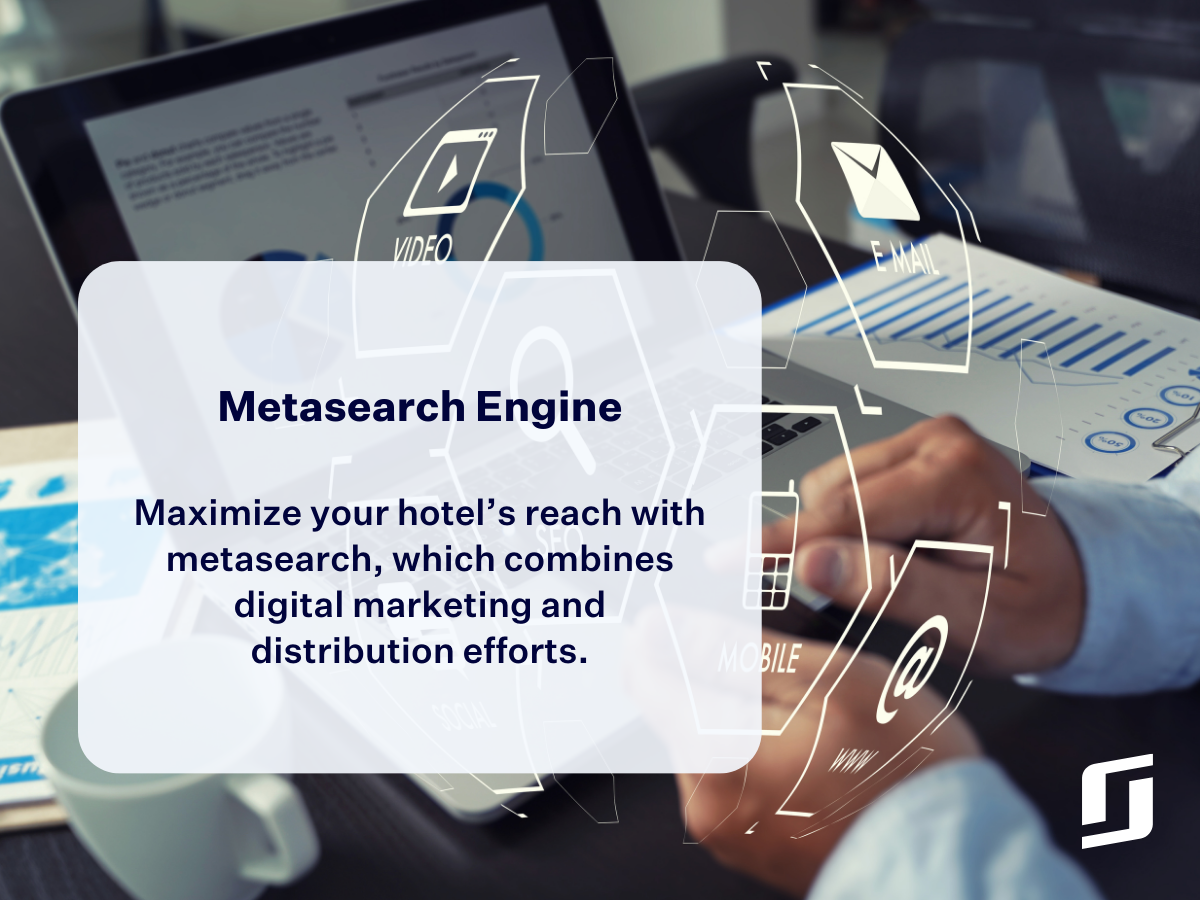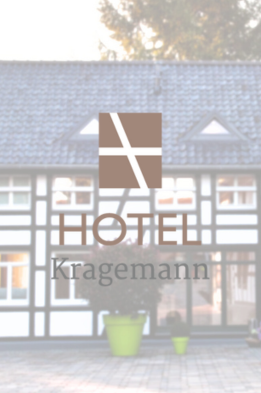What is a metasearch engine?
A metasearch engine is an online platform that sends requests to several search engines and aggregates the results into a single list. For example, hotel metasearch engines would target travellers, where they’ll be shown a list of aggregated sites to compare hotel prices and availability in real-time.
Metasearch engines have been a growing trend for the hotel industry within digital marketing for quite some time now. Over the last few years, hotel metasearch advertising has seen a rapid rise with it now contributing to the overall revenue of many hotels and other accommodation providers.
Metasearch sites are gaining ground on Online Travel Agents (OTAs like Booking.com) and have helped innovate the process for travellers. Thanks to objective positioning, metasearch engines are winning popularity among travellers and hotel guests.
This blog will give you a full guide to how your hotel can succeed with metasearch engines.
Table of contents
What does a metasearch engine do for hotels?
Metasearch engines represent a huge opportunity for hotels – the easier travellers can find and book your hotel the better. Since potential guests can discover and book almost simultaneously, there’s a higher chance of impulse purchases with less chance of abandoned bookings.
A potential guest can use these sites to find room prices for one hotel on a number of different booking sites at the same time. Some hotel listings often aggregate guest reviews, photos, amenity information and in some cases, policies too. A traveller will just need to click on the link to one of the channels to complete their booking.
Ultimately, providing travellers with a seamless booking experience on a metasearch engine, makes it easy for potential guests to find your hotel property and book the room they want, at the best price possible, for the dates they have been searching for.
Hotels should seriously look to consider investing some marketing budget into metasearch channels, or look to find ways to optimise their experience if already investing in this area, not only because of its popularity among travellers but also its beneficial comparative rate model.
Some hoteliers may shy away from adding more channels because of how long it takes to manage manually, not to mention the potential for overbookings, but think about how many people use Google and TripAdvisor to search for and book accommodation! To simplify the management of your rates and availability across these channels (and drastically reduce the risk of double bookings), a channel manager can help.
More visibility, less work What if you could boost your hotel's reach via metasearch engines while also reducing your workload? Our smart hotel platform helps you do exactly that.
How does a metasearch engine work?
A hotel metasearch engine works the same way as traditional metasearch. Travellers compare hotel room rates, based on a search term such as a destination or travel dates. Metasearch sites will then deliver results from various online travel agencies (OTAs) and other booking sites that meet their requirements, all in one place.
In a way, metasearch engines combine the digital marketing and distribution efforts of a hotel, presenting themselves as a booking channel and an environment to advertise your hotel.
The other thing to know about advertising on metasearch engines is that the hotel can ‘bid’ for ad placements on keywords. For example, a hotel may bid on ‘Sydney hotel’ to show up as a top result everytime that keyword is searched. This is where it can get complicated however, because hotels need to make sure the fee they’re paying for a click is worth the revenue the ad drives.
If a keyword is very popular, a hotel would have to bid higher to secure the top placement, which is risky. The key is to find balance. If you bid too low your listing won’t show high enough on results – but bid too high, and your guest acquisition cost will be more than it should be. Metasearch engines are not to be confused with hotel bidding sites, where guests bid on rooms and hotels may or may not accept them. More information can be found on exactly how metasearch engines work in the next section.
It’s important to note that companies such as TripAdvisor have become a one-stop shop for researching and booking hotels, making it the perfect time for hotels to start investing in metasearch engines.

Metasearch engine examples: Meta search engine list
There are obviously a few major players when it comes to metasearch engines. When looking into where you should advertise your hotel, there are a few options to look at.
You may want to consider the following:
- Google Hotel Ads
- TripAdvisor
- HotelsCombined
- Trivago
- Skyscanner
- Kayak
- WeGo
It should be noted that in general, sites such as Kayak that offer combined rates (accommodation + flights), aren’t as successful at providing hotels with a high share of top ad placements.
Maximise direct bookings from your website
SiteMinder integrates with leading hotel booking engines to keep your rates and inventory up-to-date in real-time, delivering commission-free direct bookings straight to your PMS.
Learn More
What is the best meta search engine?
Data shows that Google Hotel Ads (GHA) was the fastest growing metasearch engine with 64% of the meta market in the past few years. GHA simply gives future travellers the opportunity to book a hotel room at various crucial points throughout their research.
Anywhere a user can be making travel-related decisions, Google surfaces hotel ads to help them evaluate the pricing and booking options available to them. Google Hotel Ads displays your hotel information such as availability and rates on Google Maps, Search and Assistant.
Analysis by Fastbooking says that Google Hotel Ads has grown exponentially, surpassing TripAdvisor for click volume, traffic, and cost-per-click.
Google does have the advantage of travellers carrying out searches within its own search engine, making it much easier for them to present their price comparison tool to the end user. In comparison to other metasearch engines, such as Trivago, users are more likely to end up using Google Hotel Ads without realising it due to the subtle integration Google has developed directly into search results.
This places it as one of the best meta search engines available for your hotel to advertise on. Read our full guide to learn more about it.
Hotel metasearch engine tips and best practices
For some quick advice on increasing bookings through metasearch engines, take note of these five tips:
1. Choose the right metasearch channels
Hotels should take a specific and unwavering stance on their advertising. This means focusing on aggregators with an ‘accommodation only’ slant; prioritise sites like Google Hotel Ads above combined advertising platforms such as Kayak.
This allows a high-quality metasearch platform to continually assess the specific hotel-related needs of both travellers and hoteliers and offer a unique and intuitive experience to both parties.
2. Maintain your room rate integrity
Some sites, like Google, take rate parity very seriously. It’s important not to fluctuate your rates too much so the metasearch site can provide accurate real-time data. Fluctuation is also going to see a degradation of performance over time – and your hotel guest is most likely going to click on the lowest rate shown to them.
Some questions to ask yourself before advertising on sites like Google
Hotel Ads include:
- Does the price in search results match the price displayed on your website’s own direct booking tool?
- How do booking your prices compare to your competitors’ and other rates shown on OTAs on the same dates? They need to be competitive.
3. Use a reliable hotel PMS or CRS provider
The right property management system (PMS) or central reservation system (CRS) will not only allow you to connect to the biggest players in the metasearch field, but also help monitor the key performance metrics of your channels.
Know which channels perform best for you, and which are costing you money.
4. Fine tune your approach to meta search over time
The top positions on metasearch sites are naturally the ones that receive the most clicks, but getting to the top isn’t easy.
It’s going to be virtually impossible to outbid OTAs so you can try to bypass them with a lower rate – however if your cost-per-click (CPC) is too low you still won’t be able to compete. The best approach is to test what works over a long period of time to optimise your conversion rate. Play around with your CPC within your budget limits and see what rate brings you most success.
Remember to assess if this is sustainable for your hotel.
5. Set different strategies for different sites
Not all metasearch engines operate quite the same way and a one-size-fits-all approach is likely to fail you.
For example, TripAdvisor garners huge amounts of traffic, but its visitors may not necessarily be browsing the site with clear intentions to book a hotel room. You might get a lot of clicks, but a low conversion. Therefore you may want to set a lower cost-per-click and experiment until you have a scenario you’re comfortable with.
Alternatively, Google Hotel Ads is known to convert much better on bookings, however is a more expensive meta search option. If this is the strategy you want to tailor towards, you may need to manage your budget carefully and continue to optimise.

